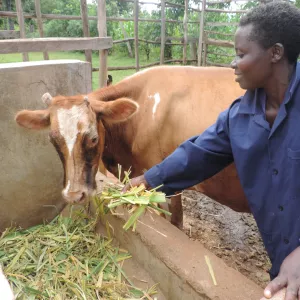Experts offer recommendations to reduce the cost of livestock feeds in Kenya
Kenya’s livestock sector plays a critical role in the country’s social, economic, environmental and public health landscape, contributing 3.8% to the gross domestic product and 17.3% of agricultural value added. However, the sector’s productivity and sustainability are significantly hindered by the high cost of animal feeds. A new policy brief by the International Livestock Research Institute (ILRI) and partners puts

Experts offer recommendations to reduce the cost of livestock feeds in Kenya
Kenya’s livestock sector plays a critical role in the country’s social, economic, environmental and public health landscape, contributing 3.8% to the gross domestic product and 17.3% of agricultural value added.
However, the sector’s productivity and sustainability are significantly hindered by the high cost of animal feeds.
A new policy brief by the International Livestock Research Institute (ILRI) and partners puts forward a range of technical, market and policy options that can help reduce the cost of animal feeds for livestock producers.
Among other recommendations, the authors of the policy brief call for joint efforts by the government, the private sector, development partners and farmer cooperatives to improve access to high-quality feed.
‘The key constraints in Kenya’s livestock feed sector are technical challenges such as low yields, poor equipment, inadequate research and post-harvest losses, which are compounded by market issues including fragmented supply chains and poor infrastructure,’ said Joseph Karugia, principal scientist at ILRI, who led the review.
Policy challenges such as high import duties, weak enforcement of feed quality standards and insufficient incentives for local feed production further compound the problem of high feed costs in the country.
Citation
Gachuiri, C.K., Lang’at, J., Lukuyu, M., Mwangi, D., Karugia, J., Lukuyu, B., Rao, J. and Rabar, B. 2025. Reducing the cost of livestock feeds in Kenya: Policy options and recommendations. ILRI Policy Brief 50. Nairobi, Kenya: ILRI.
Photo: A Kenyan farmer feeds her dairy cow with Brachiaria grass (ILRI/Muthoni Njiru)

